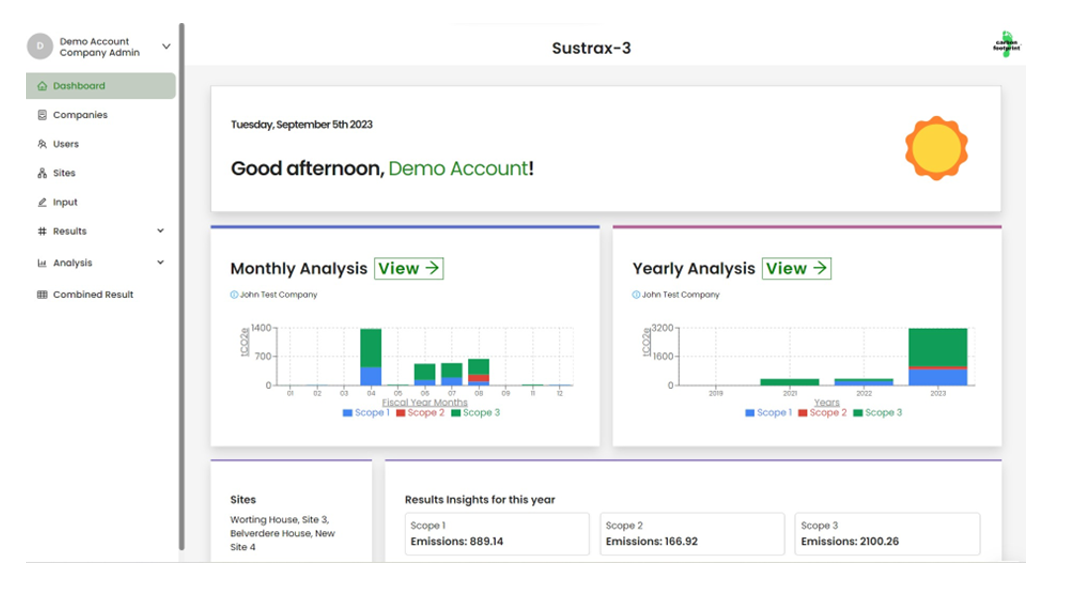Corporate Fleet Electrification
Achieve Net Zero and ensure ESOS compliance with data-driven fleet management.
Why Electrify Your Fleet Now?
It is no longer just about fuel savings—it is about strategic resilience and reducing Scope 1 emissions.
Slash Scope 1 Emissions
Road transport is often the largest source of direct emissions. Electrification is the single most impactful step toward achieving the Net Zero Standard.
Future-Proof Strategy
Stay ahead of the 2030 ban on new petrol/diesel sales and avoid rising Low Emission Zone (LEZ) charges across UK cities.
Operational Efficiency
Significantly lower "Whole Life Costs" (WLC) through reduced fuel spend, lower maintenance requirements, and tax incentives.
Reputation & Compliance
Enhance your brand value and simplify ESOS Phase 4 compliance with our integrated Sustrax tracking tools.
Financial Incentives: The Bottom Line
Leverage government incentives to fund your transition. The UK tax system heavily favors electric fleets for 2025/26.
Current rate for fully electric vehicles for the 2025/26 tax year, offering massive savings compared to petrol/diesel equivalents.
Corporations can often claim the full cost of purchasing new electric cars against their taxable profits in year one.
Employers pay significantly lower National Insurance contributions on electric fleets due to the reduced BiK rates.
* Note: Tax rules are subject to change. Our consultants can model the exact financial impact for your specific fleet profile.
Sustrax: The Operating System for Your Fleet
Stop relying on disconnected spreadsheets. Transition to Sustrax, our proprietary carbon accounting software, to manage your fleet's transition with precision.
- Accurate Footprinting: Automatically calculate emissions using the CaDI database (50k+ factors)[cite: 20].
- Fleet Analytics: Track efficiency per vehicle and identify high-emission hotspots in your logistics network.
- Compliance Ready: Export audit-ready reports for ESOS Phase 4 and SECR instantly[cite: 19].
- Integrated Data: Already a client? Your fleet data feeds directly into your total organizational footprint.

Charging Infrastructure
A successful switch requires a robust charging strategy. We advise on hardware grants and reimbursement models.
- • Workplace Charging Scheme (WCS): Maximize government grants for office installations.
- • Home Charging: Accurate reimbursement for employees using AER rates or real-time data.
- • On-the-Road: Guidance on accessing the rapid-charging network.
Residual Emissions & Transparency
For the vehicles you can't switch yet, ensure your offsetting strategy is defensible and audit-ready.
- • Measure: Track exact residual emissions in Sustrax.
- • Offset: Use high-quality credits from our COMP Marketplace.
- • Verify: Ensure quality with CRISP ratings to protect against greenwashing.
Take the Next Step
Analyze Your Fleet's Impact with Sustrax
Stop guessing. Start measuring. Request a demo of our carbon management platform to automate fleet data collection and streamline ESOS reporting.
Develop Your Net Zero Fleet Strategy
Build a defensible roadmap. Speak to a Senior Consultant about aligning your fleet transition with the Carbon Footprint Ltd Net Zero Standard.
